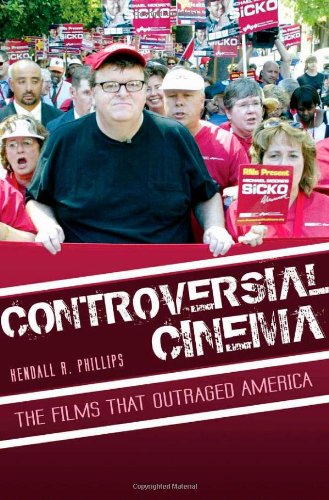

Most ebook files are in PDF format, so you can easily read them using various software such as Foxit Reader or directly on the Google Chrome browser.
Some ebook files are released by publishers in other formats such as .awz, .mobi, .epub, .fb2, etc. You may need to install specific software to read these formats on mobile/PC, such as Calibre.
Please read the tutorial at this link: https://ebookbell.com/faq
We offer FREE conversion to the popular formats you request; however, this may take some time. Therefore, right after payment, please email us, and we will try to provide the service as quickly as possible.
For some exceptional file formats or broken links (if any), please refrain from opening any disputes. Instead, email us first, and we will try to assist within a maximum of 6 hours.
EbookBell Team

0.0
0 reviewsAt the heart of any history of controversial films is a strange paradox: while films, especially popular and mainstream films, are often portrayed as meaningless products of popular culture, those popular films involved in public controversies become the focal point of enormous cultural energy, political attention, and profoundly conflicting sets of principles. The ongoing culture wars continue to shape the American political landscape, and controversial films continue to be a major point of conflict. Controversial Cinema: The Films that Outraged America traces the history of controversial films and offers insights into why it is that certain films spark controversies, and how Americans typically react to controversial moviemaking.
Since the widespread banning of DW Griffith's The Birth of a Nation, the American film industry has found itself embroiled in one political controversy after another. These controversies have centered on everything from the portrayal of the past, as in Griffith's film, to depictions of sex and sexuality, to the use of graphic violence, and issues of race, religion, and politics. In turn, segments of the American public have been driven to boycott, picket, and even censor those films they felt challenged their sense of decency. At the heart of this history of controversial films is a strange paradox: while films, especially popular and mainstream films, are often portrayed as meaningless products of popular culture, popular films involved in public controversies become the focal point of enormous cultural energy and political attention. The ongoing culture wars thus continue to shape the American political landscape, and controversial films continue to be a major point of conflict.
In the course of this wide-ranging work, Kendall Phillips offers insights into the kinds of films that spark controversies, and the ways that Americans typically react to them. Organized around broad controversial themes and with particular attention to mainstream films since the dissolution of the Motion Picture Production Code in the mid-1960s, Controversial Cinema explores why films spark broad cultural controversies, how these controversies play out, and the long-term results. The four broad areas of controversy examined in the work are: Sex and Sexuality, Violence, Race, and Religion. Each chapter offers a broad overview of the history of these topics in controversial American films as well as more in-depth examinations of recent examples, including The Silence of the Lambs, Natural Born Killers, Do the Right Thing, and The Passion of the Christ. A final section of the book considers the broader issues of cultural politics in light of the long history of controversial cinema.